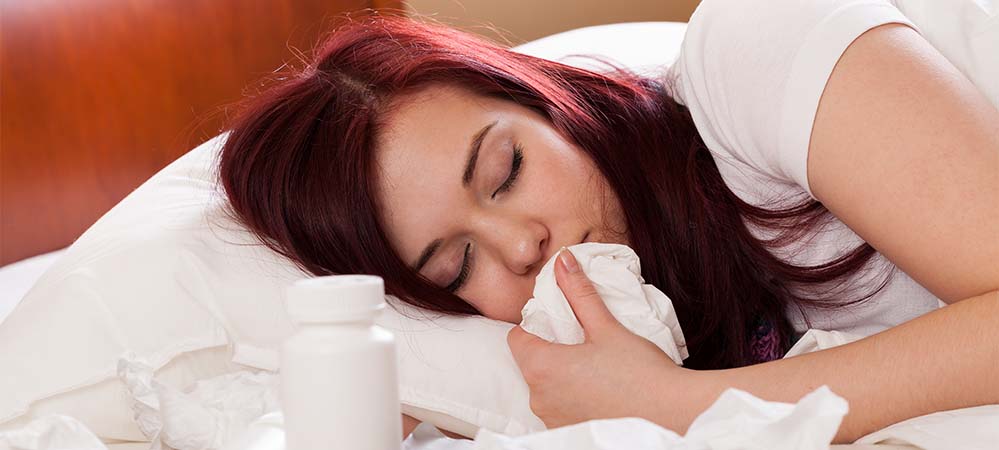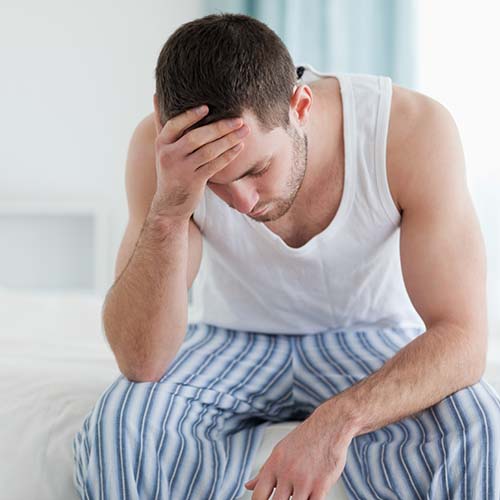If you suffer from allergies and have difficulty sleeping, you’re not alone. Millions of people suffer from sleep problems due to nasal congestion and other allergy symptoms. It’s not normal to wake up gasping for air due to nasal congestion that often worsens at night. Even if you were to rely on home and store-bought remedies to suppress the symptoms long enough for you to fall or remain asleep, their effectiveness sometimes leaves much to be desired.
Trying to sleep while dealing with a runny or stuffy nose or other allergy symptoms is not as easy as it may seem. Continue reading to learn about the connection between allergies and sleep apnea.
How Do Allergies Affect Sleep?
Without air, the body’s functions operate at a lower capacity than expected. Many people with allergies experience inflammation in their upper airways that prevents proper airflow. This inflammation is triggered by exposure to allergens and impurities in the air.
Allergies can make breathing so hard that the most common reactions include snoring and breathing through the mouth or gasping for air. Snoring is often loud and deeply disturbing to everyone within the hearing range except for the snorer. Mouth breathing leads to dryness in the mouth and throat. Jerking awake is disruptive to the sleep cycle.
Allergies and sleep apnea, in general, can cause the following:
Decreased cognitive performance
Waking up tired and unrefreshed makes operating at full mental capacity challenging. Poor decisions, memory impairments, irritability, anxiety, confusion, and mental fog are common in people with allergies and sleep challenges.
Weight gain
Nasal congestion and other allergy symptoms don’t just impact sleep. For many, sleep issues are just the tip of the iceberg. Not getting enough air impairs many of the body’s functions, especially its metabolism. Metabolism is a regulating process that can be fast, slow, or just right, depending on the specific needs of the individual. Constantly waking up because of nasal congestion and shortness of breath often prevents sufferers from entering certain phases of sleep that are essential to their bodies’ healing and repair processes.
A decline in metabolism is typical and often a leading cause of unintended and unhealthy weight gain. Also, people suffering from allergies and poor sleep quality tend to overeat because their appetite hormones are not adequately regulated. They are more vulnerable to irregular hunger urges.
Insomnia
Many people who have trouble falling or staying asleep have allergies or other health concerns and rely on certain medications to manage their symptoms. The side effects of insomnia include daytime drowsiness or fatigue and nighttime wakefulness.
Health decline
The body requires a certain amount of time for sleep. Sleep is essential because it’s when the body’s restorative functions are most active. It allows the body to recover from the day’s stresses and helps promote optimal brain and physical health and well-being. Sleep challenges due to allergies change how the body’s systems respond and function. Diabetes, high blood pressure, stroke, lower immunity, and chronic conditions are common in sleep-deprived individuals. Sleep apnea is a common cause of frequent allergy attacks, sinus infections, and other health conditions due to its impact on the immune system.
Allergies and Sleep Apnea
Allergies do not necessarily cause sleep apnea. Both conditions can develop at any time. But allergies do increase the risk of the condition occurring. Sleep apnea is not something that usually goes away on its own. Sometimes the effects of allergies impact other structures in the airways besides the passages. Severe symptoms can cause the adenoids or tonsils to swell and become inflamed, causing further obstruction of the airways. Also, unlike allergies, which can be managed utilizing various remedies, behavioral modifications, medications, and medical treatments, sleep apnea requires treatment.
Allergy and Sleep Apnea Treatment
Sleeping with allergies may seem challenging, but with the right solutions, it is possible. Tactics that can help provide short-term improvements include using air purifiers and humidifiers to remove allergens and moisturize the air, vacuuming and dusting often, opening the windows for fresh air, bathing or showering before bed, and seeing an ENT doctor for allergy or sleep apnea treatment.
Sleep quality is vital for many individuals suffering from allergies, especially those with sensitivities that increase when the weather changes. It remains an elusive goal for some. Those who cannot resolve their breathing issues before bedtime by altering their usual sleep hygiene routine eventually develop other habits that exacerbate their ability to sleep well. Treatment is the best course of action to prevent the symptoms from becoming worse and additional allergies and sleep issues.
The most critical steps in improving sleep quality and overall health are identifying potential causes and pursuing effective management solutions. Regarding allergies and sleep apnea, the first step involves getting a proper allergy or sleep disorder diagnosis and following up on treatment.
Choose C/V ENT for Allergy and Sleep Apnea Treatment
If you think your sleeping is terrible now, imagine how much worse they can get the more prolonged proper allergy and sleep apnea treatment are delayed. To learn how allergy or sleep apnea treatment can help you breathe and sleep better, call C/V ENT Surgical Group at 818-431-2769 for an appointment.


